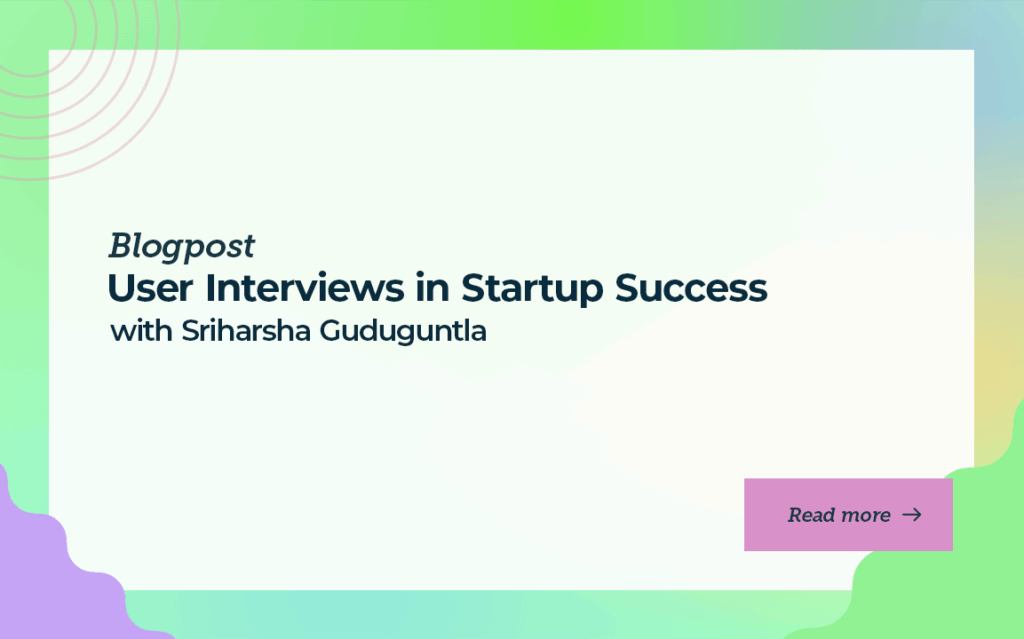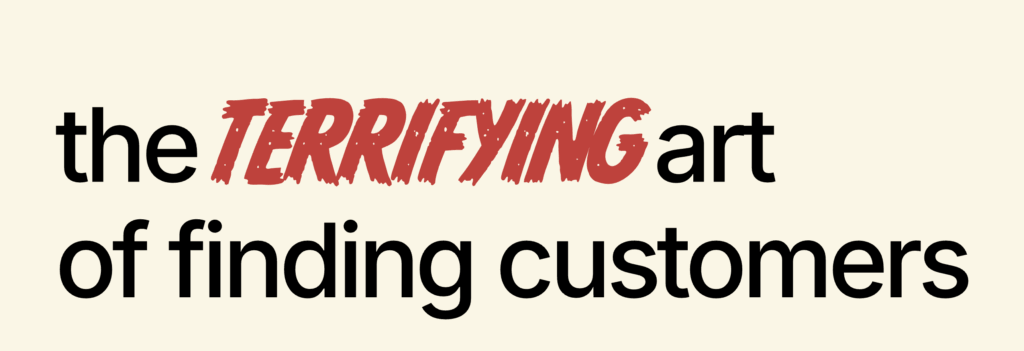User Interviews in Startup Success with Sriharsha Guduguntla

In this episode of the Predictable Revenue podcast, Collin Stewart interviews Sriharsha “Sai” Guduguntla, co-founder of Hyperbound.
They dove into what it truly takes to achieve product-market fit, from conducting 2,000 user interviews to leveraging AI for enhanced sales productivity. This post highlights the key lessons every early-stage founder needs to hear.
Product-Market Fit Is Earned, Not Discovered
Most founders talk about product-market fit like it’s a finish line. In reality, it’s a spectrum, and most startups operate in the “weak” zone far longer than they admit.
Achieving a strong product-market fit requires more than shipping quickly. It demands relentless, uncomfortable learning. For Sai Guduguntla, co-founder of Hyperbound, that meant running over 2,000 user interviews. Not 20. Not 200. Two thousand. That level of obsessive customer discovery led to insights that most teams miss, because they stop digging too early.
If you’re still trying to find traction, you probably haven’t talked to enough users or asked the right questions.
“We didn’t start with a great product. We started with a lot of conversations.” (Sai Guduguntla)
The takeaway:
Product-market fit isn’t something you find. It’s something you build. And it starts with shutting up and listening.
AI Isn’t the Product. It’s the Multiplier.
Founders building with AI face a brutal truth: just adding “AI” doesn’t make your product valuable.
The real question isn’t what you’re automating, it’s why. If your AI saves users time, improves outcomes, or helps them perform their job more effectively, you’ve got something. If it’s just novelty, it’ll wear off fast.
That’s the trap Hyperbound avoided.
Instead of chasing hype, they built AI that solved real, mundane problems, such as writing better cold emails more efficiently and helping managers coach reps without having to sit on every call.
They didn’t try to replace sales reps. They gave them leverage.
One early user put it best: “This is like the next best thing.” It’s not a magic solution, just something that makes their job easier.
If you’re building in this space, flip the question:
– Don’t ask “What can AI do here?”
– Ask “Where is the user already doing work they hate or can’t scale?”
AI is powerful. But only if you ground it in workflow, not novelty.
Don’t Scale GTM Until It Hurts Not To
You don’t need a VP of Sales. You need proof that people want what you’ve built, and will stick around for it.
Too many founders build the go-to-market engine before the product is ready to carry it. That usually ends in a few early deals… followed by churn, confusion, and a lot of second-guessing.
Here’s the test:
Are users coming back without hand-holding? Are cold prospects replying because the problem is urgent, not because your copy is clever?
Until the answer is yes, your only job is to listen, iterate, and sell it yourself. You earn the right to scale GTM once the product is working.
Hyperbound didn’t go wide until their numbers screamed PMF. You should do the same.
Because scaling what’sn’t working doesn’t fix it, it just breaks down faster.
Virality Isn’t Luck. It’s a Byproduct of Usefulness.
Every founder wants a viral launch. Most chase the optics and skip the work.
But real virality doesn’t come from flashy design or clever positioning. It comes from building something people actually want to talk about, because it solves a real, visible problem better than anything else.
If your product is working, your users will share it. Not because you asked them to. Because they want to.
Hyperbound didn’t go viral because they gamed the algorithm. They went viral because reps were getting replies, managers were getting insights, and the value was obvious. The story behind the product wasn’t “we built something cool.” It was “this made my job suck less.”
Want your launch to hit?
Build something that works. Then make it easy to share, dead simple to try, and fast to experience value.
Virality is a trailing indicator of product-market fit, not a growth hack.
You Can’t Delegate What You Don’t Understand
If you haven’t sold it, you don’t understand it.
Early-stage sales isn’t something you outsource. It’s where you learn what customers care about, what they don’t, and what actually makes them buy. That learning can’t be faked—and it doesn’t happen through secondhand feedback.
Founders who skip this step pay for it later: bad hires, broken messaging, missed signals. You can’t coach a sales team or scale a funnel if you’ve never run the playbook yourself.
Selling early isn’t about being polished.
It’s about listening hard, adjusting quickly, and proving there’s real traction, before layering on process, people, or technology.
“DIY first. It’s nearly impossible to hire, build processes, or make good technology choices when you’ve never done the role yourself.” — Predictable Revenue Manifesto
The truth is simple: until you’ve closed a deal, you’re not ready to grow.
Conclusion
Product-market fit isn’t a milestone. It’s the foundation everything else depends. Until you’ve earned it, nothing else matters, not AI, not GTM strategy, not launch tactics.
Talk to users. Sell it yourself. Build what solves a real problem. Then, and only then, scale.
Founders who skip this step earn flashy metrics but experience silent churn. Founders who don’t? They build companies that last.
NO TIME TO READ?



